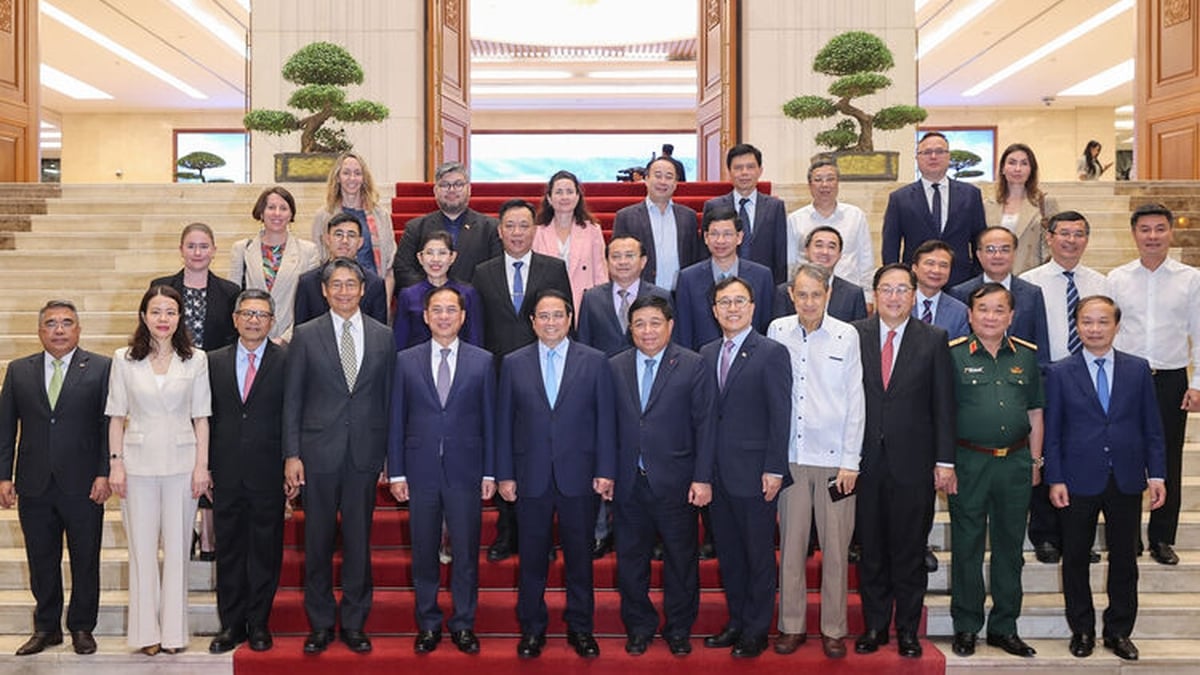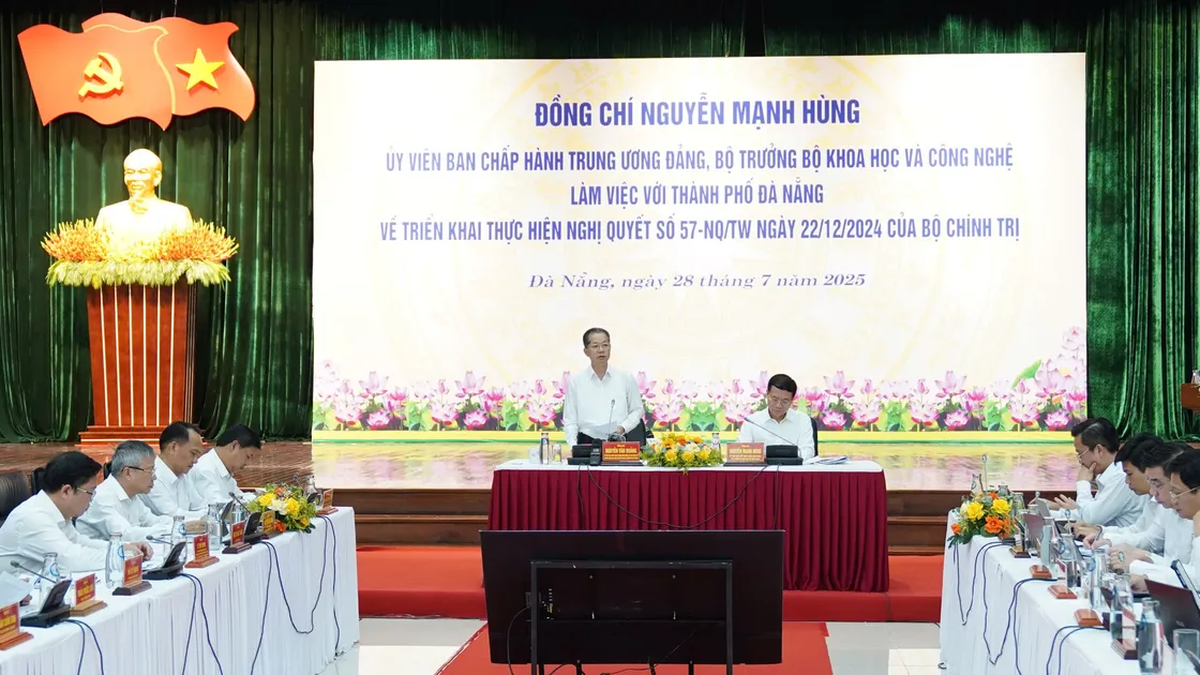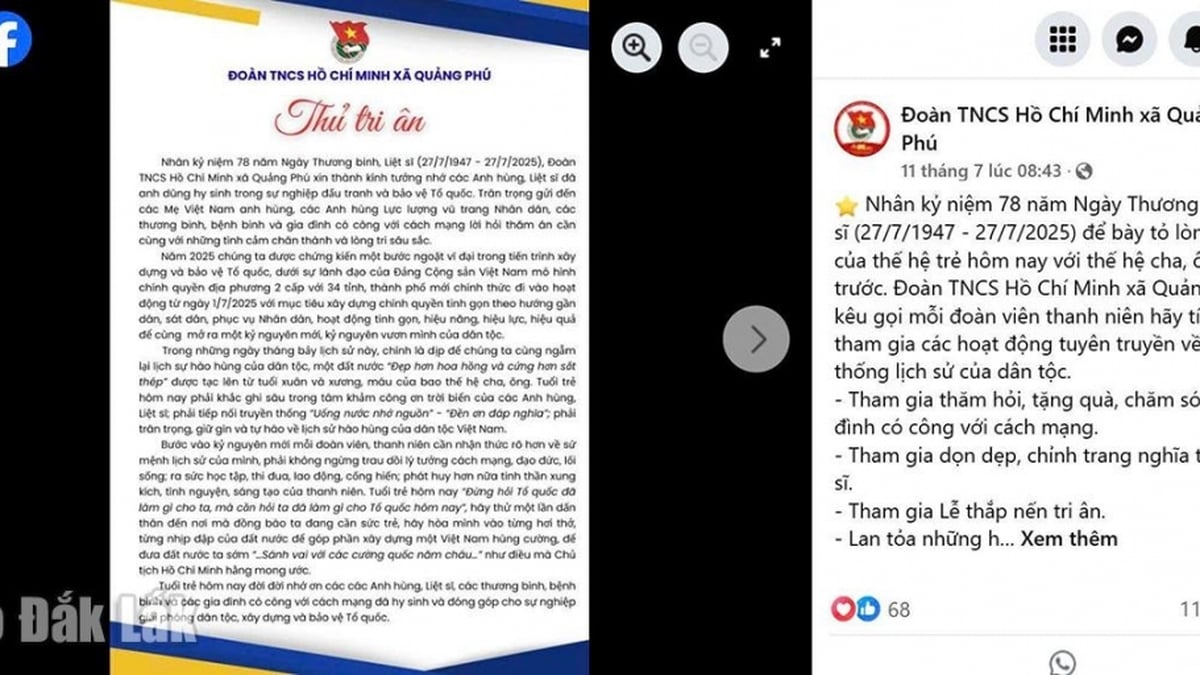On the afternoon of August 28, continuing the program of the 6th Conference of full-time National Assembly deputies, under the direction of Vice Chairman of the National Assembly Nguyen Khac Dinh, delegates discussed the draft Law on Notarization (amended).
After being absorbed and revised, the draft Law has 79 articles (amended and supplemented 70 articles; kept 8 articles; supplemented 1 article 36a), an increase of 1 article compared to the draft Law submitted by the Government to the National Assembly at the 7th Session.
Creating an open direction for the establishment of notary offices
Regarding the regulations on the organizational model of Notary Offices (Article 20), delegate Nguyen Truong Giang (Dak Nong delegation) proposed to add to the draft Law the type of notary practice organization as a private enterprise in addition to a partnership company.
 |
| Delegate Nguyen Truong Giang (Dak Nong delegation). (Photo: DUY LINH) |
According to the delegate, it is possible to study regulations in the direction that the types of private enterprises and partnerships are applied to notary offices established in areas with difficult or especially difficult socio-economic conditions; for other areas, only the type of partnerships is applied.
The addition of the notary office model as a private enterprise has the advantage of expanding the choices of notaries when establishing a notary practice organization.
Regarding some shortcomings of the private enterprise model, delegates said that they can be overcome, because the current Law and the draft Law both stipulate that notary offices are allowed to hire notaries to work under labor contracts, apply information technology in notary activities, thereby solving the shortcomings of the private enterprise model due to dependence on a single notary...
Sharing the same view, delegate Nguyen Minh Tam (Quang Binh delegation) said that the addition of the notary office model as a private enterprise has the advantage of creating an open direction for the establishment of notary offices, contributing to further promoting the socialization of notary activities, increasing competitiveness, creating convenience for people in choosing a notary organization when carrying out transactions that are required by law to be notarized, and reducing the cost of complying with the law.
On the other hand, the current Law and the draft Law both stipulate that notary offices are allowed to hire notaries to work under labor contracts, apply information technology in notary activities, and the Law does not limit the scope and authority of notary publics according to the area where the notary practice organization is located.
"The current regulation that a notary office must have two or more partners has led to a formal partnership, causing difficulties in the past. In some localities, the number of notarizations is not much, only one practicing notary can meet the demand...", the delegate stated the reality.
 |
| Delegate Dang Bich Ngoc (Hoa Binh delegation). (Photo: DUY LINH) |
Giving his opinion on this content, delegate Dang Bich Ngoc (Hoa Binh delegation) suggested that the regulations should be amended to allow notary offices to be organized according to two types of business models: private enterprises or partnerships.
Explaining the above proposal, the delegate said that according to the provisions of the Enterprise Law, both types of enterprises, namely partnerships and private enterprises, although having differences in the number of members who own the enterprise, have the same thing in that the enterprise owner must be responsible with all his assets for all activities and obligations of the enterprise. Thus, in terms of model, both types of enterprises can create trust for partners and customers because of the unlimited liability regime.
According to delegate Ngoc, in reality, many Notary Offices operate with only one notary, still ensuring regular operations and meeting the needs of the people.
There are no specific regulations on the types of transactions that must be notarized.
Regarding the regulations on types of transactions that must be notarized, delegate Nguyen Minh Tam (Quang Binh delegation) said that the Notarization Law is a formal law that only focuses on regulating the order and procedures for notarization, and which types of transactions must be notarized are regulated by the substantive law regulating that field.
The delegate cited that currently, a number of substantive laws have clearly demonstrated this principle, such as the 2024 Land Law (in Clause 3, Article 27), the Housing Law (in Article 164), and the Law on Real Estate Business (in Clauses 4, 5, and 6, Article 44). At the same time, when drafting substantive laws that have content related to transactions that must be notarized, the submitting agency is responsible for reviewing and determining specifically which types of transactions must be notarized to ensure the stability of the Notarization Law and in accordance with the principles stipulated in Clause 2, Article 8 of the Law on Promulgation of Legal Documents...
According to the delegate, if we add to this draft Law a provision on transactions that must be notarized based on the synthesis of relevant provisions of current law, and at the same time, open provisions on "other transactions that the law requires to be notarized" to anticipate situations where new requirements for transactions that must be notarized arise, it will not overcome the problem that the scope of notarization is still regulated in both the Notarization Law and other documents. Therefore, it is appropriate to regulate the scope of transactions that must be notarized only in substantive laws.
Sharing the same view, delegate Tran Thi Hong Thanh (Ninh Binh delegation) suggested that, in order to increase transparency, facilitate people who need to notarize transactions, contribute to improving the investment and business environment, limit abuse, and cause trouble for organizations and individuals, it is necessary to add to Article 71 of the draft Law the responsibilities of the Ministry of Justice in presiding over and coordinating with ministries and branches, synthesizing current legal provisions to build data on transactions that must be notarized and certified according to the provisions of law and regularly review, update and publish this data on the Ministry of Justice's Information Portal to ensure completeness, accuracy, and publicity.
At the same time, during the implementation process, the Government needs to direct ministries and branches to continue promoting the application of information technology, maximizing the role of national databases to reduce according to authority or propose competent authorities to reduce regulations on transactions that must be notarized to facilitate people and businesses.
Source: https://baothuathienhue.vn/chinh-tri-xa-hoi/de-xuat-bo-sung-mo-hinh-van-phong-cong-chung-la-doanh-nghiep-tu-nhan-145425.html

























![[Photo] National Assembly Chairman attends the seminar "Building and operating an international financial center and recommendations for Vietnam"](https://vphoto.vietnam.vn/thumb/1200x675/vietnam/resource/IMAGE/2025/7/28/76393436936e457db31ec84433289f72)










































































Comment (0)